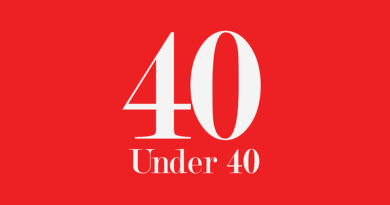Jerry Sanders’ Big Hurrah
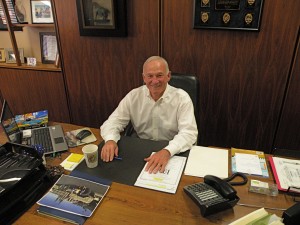
Jerry Sanders’ Big Hurrah
The mayor leaves office with an impressive portfolio
By Manny Cruz
At age 62, Jerry Sanders is not the same man who took office as mayor of San Diego in 2005, a job he will vacate on Dec. 3 as newly elected mayor Bob Filner takes the reins at City Hall.
But who would be the same? The city that has alternately been praised as “America’s Finest City” and then damned as “Enron-by-the-sea” can take its toll on any political leader ambitious enough to take on the job.
Throughout his two terms in office, Sanders has presided over some of the city’s major accomplishments and disappointments, been humbled and excoriated at times, and has been reduced to tears over matters deeply personal to himself and his family. Yet he also has been widely admired for his political courage as when he — a moderate Republican — publicly voice support for marriage equality in 2007.
Sanders will take that legacy with him when he joins the San Diego Regional Chamber of Commerce as its new president and CEO, replacing Ruben Barrales.
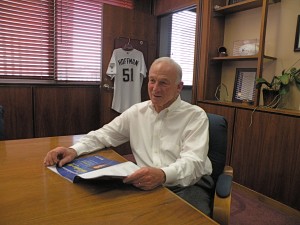
Physically, too, Sanders is a changed man. During his second term, his weight shot up to 276, perhaps from attending too many rubber chicken circuit dinners. But after indulging in a vigorous walking and diet regimen, he’s down to 186 — 90 pounds lighter and a whole lot healthier. His walks, incidentally, have been from his home in Kensington.
Sanders’ career path has been quite amazing. After attending San Diego State, he joined the San Diego Police Department at age 22, following his dad, who was a cop in Los Angeles. He rose through the ranks to become police chief and retired in 1999, ending a 20-year law enforcement career that was considered progressive and innovative.
After that, Sanders took on, in succession, a couple of restoration jobs — first as head of United Way San Diego and then as head of the local chapter of the American Red Cross. Both agencies suffered from administrative crises. Sanders was credited with pulling both of them out of their financial funk.
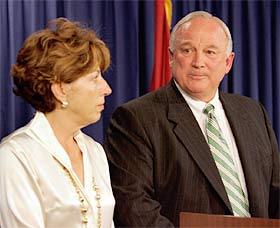
By that time, Sanders’ reputation as a turnaround guy was sealed, and he was persuaded to run for mayor and put those skills to work as the pension underfunding scheme rocked the city. Today, the city is financially much healthier.
Looking back over his multiple jobs, Sanders does not hesitate to say that being mayor has been the toughest. “This has been by far the hardest job I’ve ever even considered,” he said. “I thought being (police) chief was hard, really rewarding, loved every second of it. But one week of being chief of police is like about what I do before lunch over here on one day.”
Sanders will leave office Dec. 3. During a recent interview with SD METRO, he answered questions on a number of topics:
Q. What are the biggest challenges that your successor will face coming into office?
Sanders: You know I think that that the strong mayor form of government is going to be a big challenge in the change. I was able to ease into it over the last several years because I knew the city prior, and I knew a lot about it and we were able to work with a (city) council and put it together. I think the new mayor is going to come into it kind of cold and I don’t know if that’s going to be a massive change or a small change but I think that’s going to be a challenge, how you work with council in putting it altogether.
Q. What do you consider your major successes during your terms as mayor?
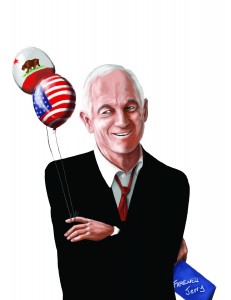
Sanders: Well I guess I don’t consider anything my success. We’ve had a really smart staff and tremendous community support so I think the successes have been stabilizing the financial situation so that we have surpluses going out for the next five years. I think that’s been a tremendous accomplishment for everybody. The new Downtown Library is certainly one. Moving ahead with the Convention Center expansion, Plaza de Panama, are all big things and then pension and retiree health care reforms. And all of those things required so many different people helping out, from the business community to the regular community, the staff and all that, so I think it’s been kind of team successes.
Q. What about major disappointments?
Sanders: I have been asked that a lot and I think that probably the biggest one was the downtown City Hall. I think that was an important project that would have saved the city a lot of money in the long run. I think it would have redeveloped this end of Downtown where we have a lot of homeless issues out in front which could have been designed differently to alleviate all that. But, you know, you can only do so many things. And that’s just one that had to be taken off the table.
Q. What was the major problem with that?
Sanders: Well, I think the major problem is that we are in tough financial times. It is very easy to demagogue an issue like that, you know, “Watching city employees have such a great place to work.” Well my response was, “would you want your son or daughter in this building? The only non-sprinkler high-rise in Downtown that’s full of asbestos?” And it is not really ADA compliant or anything else. So it was just a tough sell to the voters at that time and we said we’d get a public vote and it just finally fell off the list because we were working so hard and so long on other projects.
Q. Is there any interest to start that whole thing over again?
Sanders: Well, I think that council members would like to see that and we’re getting ready to do a new leasing plan and we lease about five buildings Downtown right now and what we showed was that having all the city employees all in one building could have saved money every year. But once again, that’s something they’re going to have to take up and push if they like it.
Q. Do you think the mayor should have any say in the school district and how it is run?
Sanders: That’s just something that we didn’t take on. And we had so many problems ourselves and the school district’s got deep, deep problems and that’s not something that I thought we could tackle. I always hate to see even more politics added on and the school district with the school board is as political as you can be and when you add another layer on, I’m just not sure how that benefits.
Q. Put your thinking cap on and envision San Diego 10 years hence. What do you think it will be?
Sanders: Well, I think what’s going to be happening in 10 years is people are going to be talking about expanding the Convention Center again. You know, San Diego is the No. 2 convention destination in the United States now, and we’re going to be adding about 1 million square feet of the largest contiguous convention center space on the West Coast of North America. And I think in 10 years people are going to be saying, “we should have added more” because I think, you know, that’s just the Golden Goose for San Diego. It’s bringing tremendous tourism, its bringing tremendous room nights. That’s what keeps Downtown alive in a lot of ways, having all those people all over and I think it’s going to continue becoming even more exciting for people, so I think that’s going to be a big one.
Q. Will we still be talking about the Chargers? A new stadium?
Sanders: I would hope it would be done before then. I think we had a good plan. I think it’s a plan that would have really done a lot for the east end of Downtown. I think that maybe by then, it will be coming into completion. But a Downtown multi-use stadium down on the 16th Street corridor, where it is really rough right now, with a live entertainment zone between Petco (Park), Gaslamp and there, makes a tremendous amount of sense. Look and see what Petco did for Gaslamp. I think that would have the same impetus there. So I think that’s something that will be coming into completion at that point and create a lot of new jobs.
Q. What are you going to do after you leave?
Sanders: My wife (Rana Sampson) and I are going away for about three months (to Italy) and we’re just going to enjoy life. And then I’ll figure out what I’m going to do when I grow up. It’s a little hard to do that while you’re still in office. The feelers are out all over; there’s talk about me coming onto this board or that board, but you know I really think that until Dec. 3, I just want to concentrate on what I’m doing and then make some decisions then, but the tendency is to say “oh yeah, I’m going on this nonprofit board and all that,” and pretty soon you’ve loaded up and you don’t have time to do anything else. So I’ll be going back to work, but nothing in politics.
Q. Is this your last political shot?
Sanders: Yeah, this is my last political stop. People say, “we’d like to see you run for something else,” but I say I’m way too smart for that. I’ve learned my lesson this time.
Q. What was the hardest job that you’ve had? You were police chief, headed United Way and then mayor.
Sanders: This has been by far the hardest job I’ve ever even considered. I thought being (police) chief was hard, really rewarding, loved every second of it. But one week of being chief of police is like about what I do before lunch over here on one day. This is so multi-dimensional, involving things that I don’t know about or didn’t know about and then you are dealing with politics also, which is a very strange art form just in and of itself . It’s been a real challenge for me, anyway.
Q. With the Chargers, the issue always keeps coming up, disappears, and then comes up again. Are they talking to you?
Sanders: We talk to them all the time. They have a lease until 2022 or 2023, I think. I think the landscape’s changed a little bit. You know, if you go back five or 10 years ago, cities would bid anything to get a sports franchise, whether it was football, baseball, basketball. I mean they were throwing out massive amounts of money and we’ve seen a retrenching in that. Cities have gone through tough times and so we keep talking with the Chargers. I believe they want to stay here. Dean Spanos has never said anything else other than that. He’s been very up front. I think he’s been very patient. But you know this is a complicated thing to put together. We had a good plan and then the governor came and took away redevelopment at the last minute and some of the properties involved in that were redevelopment properties that they make take back from us.
Q. Makes it really complicated, doesn’t it?
Sanders: It does because we had a list of things we were going to do in the last two years and then the governor came in and that was not even an issue on our plate and that has been a huge issue that’s taken up an enormous amount of time and you are talking about literally billions of dollars that is just exiting now that we’re having to fight over every penny and obligations we already have and pieces of property that we bought for parks; they want those back and it’s just a mess right now.
Q. Civic San Diego, the entity that took over for CCDC (Center City Development Corp.) Is that doing well?
Sanders: We’ve combined the boards. We’ve taken some board members from CCDC and some from SEDC (Southeastern Economic Development Corp.) and combined them into one board to handle all the redevelopment areas in the city. Part of it’s a wind down because there is just not a lot of money to run it right now. And part of it is them looking over Downtown and watching out and looking over the SEDC area and seeing what they can still do there and then they’re also going out for new market tax credits to try and create some new things, so I think they’re doing well and I think that they’ll pull out of it, but it is going to be a very different agency.
Q. What is the difference between Civic San Diego and CCDC, since there are no more redevelopment agencies. Do you consider that a redevelopment agency?
Sanders: It is handling the wind down. So it’s still a redevelopment agency in that respect. The reason we changed it is because it doesn’t just cover CCDC anymore. It covers all 13 areas that we have. So they are winding down some of east San Diego, south San Diego, so we needed to change the name on it to reflect that it wasn’t just CCDC anymore, it was really about Civic San Diego. But they are looking for ways to continue to work in the Downtown area and the southeast area specifically to carry on some of the programs we have going and some of the development.
Q. There are other things you’ve done since being mayor, you’ve lost a lot of weight.
Sanders: Yeah. I worked on it.
Q. How did you do it? What did you do?
Sanders: It’s been a long, slow process. I started working out with a trainer a couple days a week. And he said, “You know, you’re working out really hard and you’re walking a lot and you’re not losing any weight, so something’s going on.” So he said, “We’re weighing you every Friday.” And once I started weighing in, I told him, “You know, fat boys don’t like to be on scales,” so I started losing about a pound or two every week for a long period of time. I walk between 60 and 70 miles a week. I got in six (miles) this morning before I came here.
Q. Where do you walk?
Sanders: I live in Kensington, so I walk down to Park Boulevard, over to Meade and back. And that’s about a six-mile round trip for me. On Saturdays and Sundays, I’ll walk Downtown and back. That’s about 14 miles round trip. I go down Park Boulevard all the way to Market Street and then over to First and up First and then through Balboa Park and back over to Park.
Q. What did you weigh when you first started?
Sanders: I weighed 276. And now I’m down to about 186. That’s about 90 pounds.
Q. If you had been a king or a dictator, what could you have done differently than what you had to do working with a city council?
Sanders: Well, things would have occurred a lot quicker. I’m not sure people are comfortable with that and I use as an example Plaza de Panama. I think it is a no-brainer. We have philanthropy involved. We get these 7,000 car/pedestrian interactions per day out of Balboa Park … We return it to its historical context and it is not costing anybody any money and yet that has enflamed things in an unbelievable way. So as a dictator you could do that right away but I think you have to let the public process go through, even though it is slow and painful. But people have different ideas and my ideas are not always right. I found that out a few times. Well, you always think you have the best idea and I frequently find I don’t.

